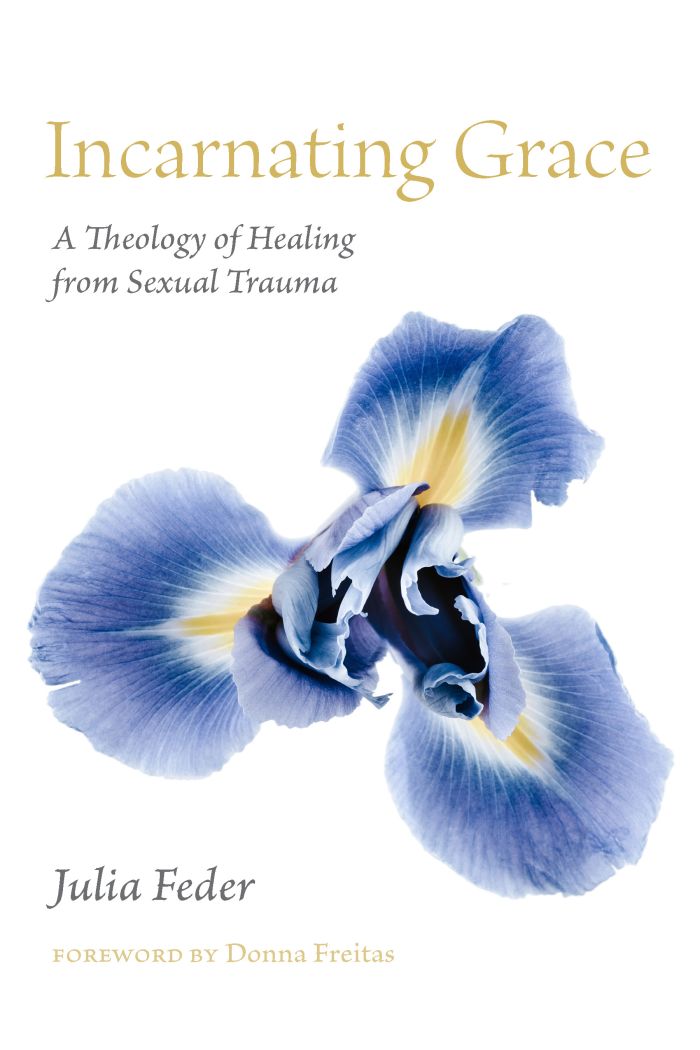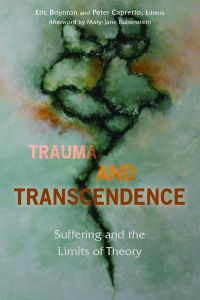Incarnating Grace
A Theology of Healing from Sexual Trauma

This book can be opened with

WINNER, COLLEGE THEOLOGY SOCIETY BOOK AWARD
Prioritizes survivors of abuse by reexamining Christian ideals about suffering and salvation
More than half of women and almost one in three of men in the United States have experienced sexual violence at some time in their lives. Yet our Christian tradition has failed survivors of sexual violence, who have been taught to believe that traumatic suffering brings us closer to God. Incarnating Grace attempts to save our broken ways of talking about God’s grace by unearthing liberating resources buried in the Christian tradition.
Christian ideas about salvation have historically contributed to sexual violence in our communities by reinforcing the idea that suffering is salvific. But a God worth worshiping does not want human beings to suffer. Drawing on the sixteenth-century Spanish mystic Teresa of Avila as well as contemporary political and feminist theologians, philosophers, and legal scholars, author and Associate Professor of theology Julia Feder offers an account of Christian salvation as mystical-political.
Feder begins by describing the breadth of traumatic wounding and the shape of traumatic recovery, as articulated by psychologists. Since the fullness of post-traumatic healing requires reserves deeper than those which can be articulated by the secular field of psychology alone, the book then introduces the Spanish Carmelite Saint Teresa of Avila and her theological insights, which are most helpful for constructing a post-traumatic theology of healing. Arguing that God stands against violence and suffering, the book also examines the notion of “senseless suffering,” a technical term that comes from Edward Schillebeeckx, a Catholic twentieth-century Flemish priest and theologian. The suffering of sexual violence serves no higher purpose or greater human value and pushes against all ways of making sense of the world as good and orderly. In the following chapters, Feder turns to two Christian virtues that animate post-traumatic recovery, courage and hope, and explores how Christian hope can provide a language to empower courageous activity undertaken toward healing.
Incarnating Grace opens a new dialogue about salvation and violence that does not allow evil to have the last word.
Feder’s new book offers a powerful theological examination of the pervasiveness of rape culture and the harrowing aftermath of sexual violence. She draws on biblical and theological witness to provide alternatives to the church’s devastating justifications of victimization. Weaving personal narratives and trauma theory into the embodied and social mysticism of Teresa of Avila and Schillebeeckx, she provides a bracing but ultimately hopeful perspective on how to understand and respond to trauma.—Wendy Farley, Rice Chair of Spirituality, Graduate School of Theology, Redlands University
Drawing on interdisciplinary trauma studies and the witness of victim-survivors, Incarnating Grace brings the harrowing realities of sexual violence and the difficult work of recovery into conversation with some of Christianity’s great thinkers. What results is a theological lifeline for victim-survivors of sexual violence who are reaching for healing and hope. At once inventive and deeply rooted in tradition, Feder’s inspired readings of Teresa of Avila and Edward Schillebeeckx show that Christianity has important resources for supporting posttraumatic survival, justice, and healing.—Jessica Coblentz, author of Dust in the Blood: A Theology of Life with Depression
From start to finish, Julia Feder's Incarnating Grace is motivated by her love for persons suffering from sexual violence. Drawing on interdisciplinary trauma studies, first-person narratives, and the mystical-political wisdom of Teresa of Avila and Edward Schillebeeckx, this beautiful book illuminates a path of healing for victims and survivors that is urgently needed today. It reveals God as the Friend of the traumatized--an affirming companion who offers encouragement and hope and never wills their suffering. This is compassionate theology at its finest.—Andrew Prevot, Amaturo Chair of Catholic Studies at Georgetown University and author of The Mysticism of Ordinary Life: Theology, Philosophy, and Feminism
Julia Feder beautifully weaves together the voices of survivors, the insights of Teresa of Avila, and contemporary political theologians and feminist theorists to create a compelling theology of healing from sexual violence. Her portrait of eschatological hope in the aftermath of abuse is a necessary and important contribution to both academic and ecclesial conversations about trauma and theology.—Jennifer Beste, author of College Hookup Culture and Christian Ethics: The Lives and Longings of Emerging Adults, and God and the Victim: Traumatic Intrusions on Grace and Freedom
Incarnating Grace: A Theology of Healing from Sexual Trauma by Julia Feder argues that the church has failed sexual abuse survivors by glorifying suffering, and proffers that Christian virtues of courage and hope can help with post-traumatic recovery.—Publishers Weekly
Victim-survivors of sexual violence will thank Julia Federer for collecting some of the best insights in the field and developing a strong theological analysis. She dispenses with the unhelpful tropes about redemptive suffering and focuses instead on the healing work that religions can do. Feminist scholar-activists and Teresa of Avila alike can be enlisted in this urgently needed work.—WATER – Womens Alliance for Theology, Ethics and Ritual
Through careful and compassionate attention to the experiences of victim-survivors, Incarnating Grace offers readers an unflinching look at rape and traumatic suffering. [Feder] methodically avoids sentimentality and leaves us rather with a theologically well-grounded incarnational and eschatological hope for a future where rape is unthinkable.—Theological Studies
Foreword by Donna Freitas | ix
Introduction: Saving Grace | 1
1 Salvation as Mystical-Political Healing | 7
2 Teresa of Avila: A Saint for Survivors | 27
3 Teresa’s Embodied Anthropology | 49
4 The Survivor as Imago Dei: Created for Friendship | 69
5 Edward Schillebeeckx’s Theology of Suffering | 90
6 The Story of Jesus and the Mystical-Political Shape of Salvation | 103
7 Courage in the Work of Posttraumatic Healing | 122
8 Recovery and Hope | 152
Conclusion: A Theology of Healing | 165
Acknowledgments | 181
Notes | 183
Index | 235





